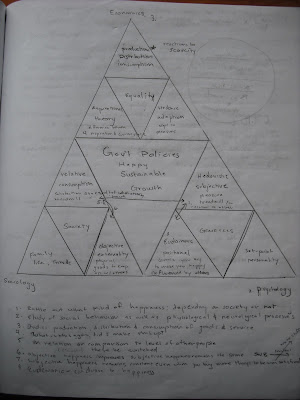









This is blast from the past, found it on my computer the other day and thought it would be good to share old news. It's a bit painful at times, but that's just how the past is. I wrote part of this article for an on-line magazine connected with an organization called sustainable style foundation. My boss/teacher gave me an A- for dress...becuase you were wondering about that dumb picture of me with a poloroid camera.
Hello from Seattle! My name is Anne-Marie and I used to be an intern at the Sustainable Style Foundation for 10 lovely weeks. Now I am a sustainable warrior with a passion for traveling and learning about the world. I am currently a student and Seattle Pacific University in my last 8 weeks of school! Freedom!!! This Christmas break I took a trip across the West Caribbean on a program through the University of Virginia called Seminar at Sea. For anyone who has heard of Semester at Sea, (100 days around the world that’s going towards your degree, hopefully!) Seminar at Sea is a 10 day program that includes lectures, professional artists, dance instructors and musicians aboard to teach and add to your experience at sea.
Before I entered each country I listened to lectures about specific social movements such as that of the Zapatistas in Mexico, natural treasures like the Great Barrier Reef of Belize, and the rich history of Maya culture in the Yucatan Peninsula. This was no ordinary cruise. The food was not good, I didn’t get a tan, and each day was steeped in knowledge.
To start out Seminar at Sea I docked the M.V. explorer in the Bahamas. For half a day my family and I road around Paradise Island on little scooters checking out old ruins near Nassau and Atlantis, a new building that is made to look like old ruins. Atlantis simply out of control. Too many people, pink, and designer purses. I have to admit that I was very impressed by the football field length walkway of windows displaying giant gliding manta rays.
Did you know that there were an estimated 40,000 native Indians before Christopher Columbus discovered the Bahamas (in 1492)? In 1517 because of disease, hardships, and the arrival of the Europeans they were practically non-existent.
Did you know that Christopher Columbus died of syphilis?
The Panama Canal was incredible, the huge moving cargo city of ships are made specifically for the Panama Canal. It usually takes about 10 hours to go through all the locks. All of the payments to pass through the canal are done win U.S. cash, with charges depending on the size of the ship. A little sail boat will only cost its captain about 20 dollars. The ship in this picture paid 243,000 American dollars right then and there to go through the Panama Canal! It’s kind of maddening to think where all this money is going from the Panama Canal. Colon Panama was not the ideal family fun environment; you could tell that crack cocaine has impacted the community of Colon in a major way. While in Panama I got to learn about the many issues with U.S. involvement in Panama dating back to Teddy Roosevelt and Bush Sr.’s hand in civil disputes. I am always amazed by how much I do not know, especially when I travel.
We docked in Belize on Boxing Day, so the country was quite. My family and I snorkeled the Great Barrier Reef of Belize which is filled with really impressive colors and visibility. When taking an informal tour of Belize City my brother and I keep noticing gaggles of boys by the road side throwing rocks into the trees. Curious about this common site we asked our taxi driver what they were doing. Our taxi diver pulled over to the side of the road and pointed out several bright orange iguanas soaking up the sun high in the trees. Apparently these orange iguanas taste like chicken.
After visiting 3 countries in 3 days our ship needed to take a couple days at sea to get to our next destination. These days were some of the most rocky I had ever experienced. Grandmas attached to their walkers were flying across the hallways, elevators were shut down and mobility was near impossible. With the exception of the 14 foot swells the trip was great. But I could not help but feel way too privileged to be on such an excursion. Looking back at the faces I encountered across the Caribbean I wonder what they were thinking when they saw me. Am I someone who is making light of their boredom, lying down under their palm trees, eating their food and drinking their beer? I am not a mind reader, but at times I would meet someone’s gaze and see them thinking, “why her and not me? Why am I not visiting your land, eating your food and drinking your beer?”



















































